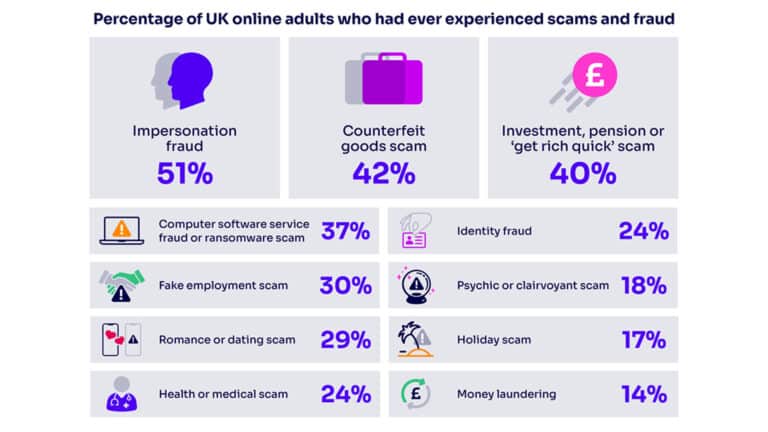New figures from Ofcom show that 43m UK adult internet users have encountered suspected online scams, with 1 in 5 of them left more than £1k out of pocket.
The research found that the majority of people thought tech firms had to take responsibility to tackle the problem.
It comes as the new Online Safety Bill makes its way through parliament. This says that tech companies will be required to assess and take steps to mitigate the risks of harm to users from ‘priority illegal content’.
This includes certain types of fraudulent content and they will also have to take steps to mitigate the risk of the platform being used to commit or facilitate fraud.
“Falling victim to online fraud can have a devastating impact on people’s financial and mental well-being,” said Richard Wronka, Ofcom Director, Online Safety Policy.
“The Online Safety Bill will place new obligations on online services to protect their users against online fraud and scams. Today’s report provides crucial evidence that will help to inform our approach to implementing those new laws when they arrive.”
The Bill, which gives Ofcom additional powers, has been criticised by some tech firms, including Meta’s WhatsApp, which stated that it would sooner stop the service in Britain than “lower its security.”
Tech firms have also stated that the Bill is too far reaching and some MPs say they’re concerned about its impact on the freedom of expression.
Ofcom’s study shows that 46% of participants had been personally drawn in by an online scam, while 39% knew someone else who had fallen victim.
34% of victims stated that the experience of being scammed had an immediate negative impact on their mental health.
Of those who had experienced an online scam or fraud, nearly a quarter (23%) first encountered it on social media – the second most common channel after email. (30%).
Impersonation fraud (51%) was the most common type experienced, followed by counterfeit goods scams (42%), investment, pension or ‘get rich quick’ scams (40%) and computer software service or ransomware scams (37%).
Potential victims were most commonly contacted via a direct message, or a mass message posted to a group (46%). A fifth were reached through online advertisements (20%), while others were targeted through user-generated and influencer posts or videos (6% and 4% respectively).
However, only 17% of those who had experienced a potential scam or fraud online didn’t take any action. This was because they didn’t think their report wouldn’t be acted upon or make a difference.













